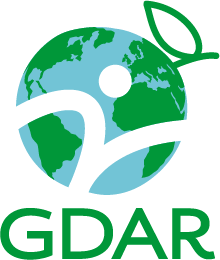This work involves the identification and review of published and grey literature from Africa and the Caribbean to investigate the determinants of diet and physical activity in low and middle income country (LMICs).
A scoping review of reviews was led by Cambridge to identify the range of literature available. The scoping review focuses on the general socioeconomic, cultural, and environmental conditions; social and community networks; and living and working conditions, alongside the impact of global influences such as climate change and trade rules on diet and physical activity. Within these categories, there are a range of potential upstream determinants of the lifestyle factors (diet and activity behaviours), which are our outcomes for this review.
Informed by the scoping review, two systematic reviews are in progress.
- Factors associated with travel behaviour in African and the Caribbean
- The association between social and community networks, and physical activity in Sub-Saharan Africa and the Caribbean
The first review is being led by Cambridge and the second by the University of the West Indies (UWI). Senior and junior researchers from many partners are contributing as screeners and data abstractors to both reviews so building capacity in this area.
1. Factors associated with travel behaviour in African and the Caribbean: a mixed methods systematic review
In 2015, the United Nations Sustainable Development Goals (SDGs) were adopted, setting a plan of action for people, planet and prosperity to be achieved by 2030. In particular, SDG 3.4 aims to reduce premature mortality from NCDs by one third and SDG 11.2 aims to provide access to safe, affordable, accessible and sustainable transport systems. The promotion of active modes of travel could contribute to both goals.
Travel behaviour is complex, and there are myriad contextual factors that influence attitudes or preferences for specific travel modes such as walking or cycling. A number of aspects of the physical, social and economic environment have been considered important for mobility and travel, including climate, land use, material wealth, accessibility of opportunities, social cohesion, crime, safety, health and democracy. These determinants need to be further examined and contextualised in low and middle income countries.
Research objectives
This mixed-methods systematic review aims to:
- Synthesize existing empirical quantitative and qualitative evidence on the factors associated with routine or regular travel behaviour in Africa and the Caribbean
- Describe and critique the study designs and methods that have been used in this literature
- Identify relevant existing grey literature related to travel behaviour or transport policy in selected African and Caribbean countries
- With the overarching objective of informing the development of evidence-based interventions or policies to support healthy and sustainable travel.
Methods
Mixed method systematic review incorporating meta-ethnography and the principles of pattern matching to draw together and interpret qualitative and quantitative data.
Links and resources
2. The association between social and community networks, and physical activity in Sub-Saharan Africa and the Caribbean: A systematic Review
Numerous social factors may determine physical activity levels, some of which are related to belonging to and participation in social and community networks (activities). With increasing recognition of the importance of social interactions on changing health behaviours, interventions involving established social and community networks (including virtual networks ) are being used to promote health and target a number of health behaviours. The results on the effectiveness of social network interventions for physical activity depend on the nature of the social/community network, society as well as the type of intervention being evaluated.
Research objectives
This mixed methods systematic review aims to:
- Synthesize existing empirical quantitative and qualitative evidence on the use of community and social networks for physical activity in Africa and the Caribbean;
- Describe and critique the study designs and methods that have been used in this literature;
- Identify relevant existing grey literature related to policy in selected African and Caribbean countries for the use of community and social networks for physical activity.
- The overarching goal is to provide information for evidence-based community and social interventions, programmes activities or policies which will improve physical activity levels in Africa and the Caribbean.
Methods
Mixed method systematic review using a segmented methodology framework. This means that we will perform syntheses of quantitative and qualitative data separately, using recommendations from the qualitative syntheses to contextualize quantitative data and consider potential reasons for their successes and/or failures.
People
Researchs lead / key contacts:
- Travel behaviour: Lou Foley (Cambridge UK)
- Social and community networks: Nadia Bennett (UWI, Jamaica)
Study team – across both reviews
- Felix Assah (University of Yaoundé, Cameroon)
- Ian Hambleton (UWI, Jamaica)
- Ishtar Govia (UWI, Jamaica)
- Nathalie Guthrie Dixon (UWI, Jamaica)
- Marshall Tulloch-Reid (UWI, Jamaica)
- Charles Obonyo (KEMRI, Kenya)
- Vincent Were (KEMRI, Kenya)
- Lisa Mickelsfied (DPHRU, Wits, South Africa)
- Gudani Mukoma (DPHRU, Wits, South Africa)
- Safura Adbool Karim (PRICELESS, Wits, South Africa)
- Lee Randall (PRICELESS, Wits, South Africa)
- Kufre Okop (UCT, South Africa)
- Anna Brugulat (Cambridge, UK)
- Ebele Mogo (Cambridge, UK)
- Gabriel Okelo (Cambridge, UK)
- Lambed Tatah (Cambridge, UK)
- Eleanor Turner-Moss (Cambridge, UK)
- James Woodcock (Cambridge, UK)
